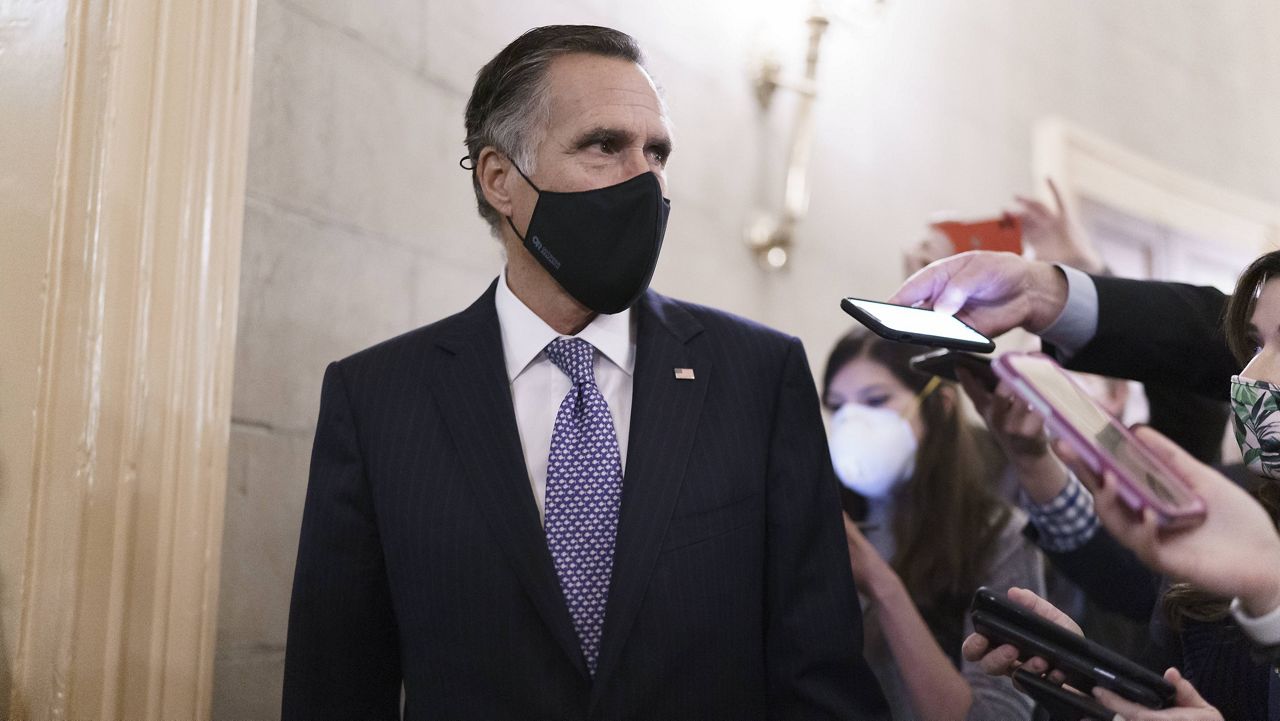Senators have reached an agreement on a $10 billion COVID-19 aid package, Sen. Mitt Romney, R-Utah, wrote in a statement on Monday, the culmination of weeks of negotiations between Republicans and Democrats in Congress – and less than half of what the Biden administration initially asked for.
Members of the two parties had long butted heads over President Joe Biden’s request for additional money to address the ongoing COVID-19 pandemic. Biden had originally requested $22.5 billion be included in the $1.5 trillion government spending package passed last month, and Democrats tried to include at least $15.6 billion – but the provision was ultimately dropped entirely after it stalled passage of the larger package.
Many Republicans voiced concerns over the high price tag focused on the coronavirus pandemic specifically, saying there is still unused money available from previous packages to be distributed for the same purposes.
Romney, who was a key liaison between parties working to find a middle ground, on Monday said the agreed-upon $10 billion would provide for “urgent COVID needs and therapeutics by repurposing unspent COVID funds primarily from the Democrats’ American Rescue Plan.”
“Today’s agreement does just that by repurposing $10 billion to provide needed domestic COVID health response tools,” Romney said. “Half of the funding will be used for the development and purchase of therapeutics — potentially eliminating the need for future vaccine and mask mandates."
"Importantly, this bill is comprised of dollar-for-dollar offsets and will not cost the American people a single additional dollar," Romney added.
The bill does not, however, include funding for global vaccination campaigns, which members of the Biden administration have stressed as imperative in stopping the emergence and spread of new variants around the world.
Romney said he is “willing to explore a fiscally-responsible solution to support global efforts in the weeks ahead.”
The $10 billion allocation will go towards the Biomedical Advanced Research and Development Authority and half of the funds will be used to “research, develop, manufacture, produce, purchase, and administer therapeutics” for COVID-19, per Romney’s release; at least $750 million will go towards researching emerging coronavirus variants and potential vaccine manufacturing expansions.
In a statement, White House press secretary Jen Psaki said the administration is “grateful for the Senate’s work on a bipartisan plan to help meet some of the country’s COVID-19 response needs,” but stressed the White House continues to believe that every dollar of the $22.5 billion originally requested “is essential and we will continue to work with Congress to get all of the funding we need.”
“But time is of the essence,” Psaki added. “We urge Congress to move promptly on this $10 billion package because it can begin to fund the most immediate needs, as we currently run the risk of not having some critical tools like treatments and tests starting in May and June.”
Psaki said the White House will continue to work with senators including Romney and Majority Leader Sen. Chuck Schumer, D-N.Y., to create a bill to fund a continued international response on COVID-19, saying in part: “We must continue our work to vaccinate the world both because it is the right thing to do, and also, because as it is critical to reducing the risk of new variants, which in turn is critical to the safety of the American people.”
Schumer, while thanking Romney for "leading the negotiations for the Senate Republicans," and fellow GOP Sens. Richard Burr of North Carolina, Roy Blunt of Missouri and Lindsey Graham of South Carolina for their "help and support to reach this bipartisan agreement," also said he is "disappointed that our Republican colleagues could not agree to include the $5 billion in global health funding that was originally agreed to" in the spending bill.
"The international funding is something I feel is very important and will work to include in separate legislation," he said. "We are all more vulnerable to a major breakthrough variant if we do not support the numerous other countries with lower vaccination rates and fewer resources than the United States."
